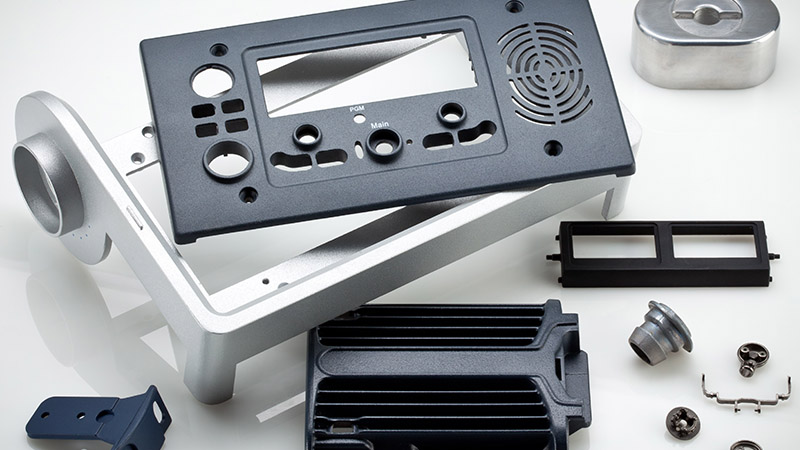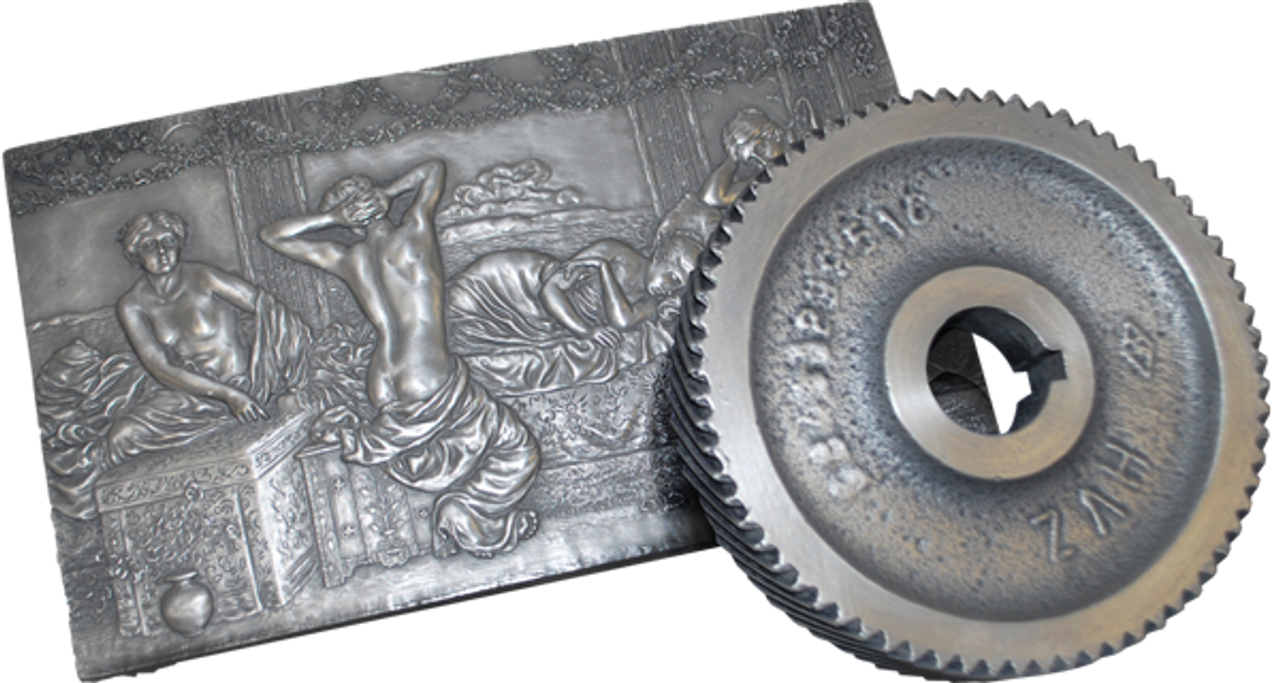The science behind the success of every Casting Foundry
Comprehending the Manufacturing Refine and Upkeep Practices for Light Weight Aluminum Factory Products
The manufacturing procedure for aluminum shop items is detailed and needs a complete understanding of multiple stages. From the melting of aluminum at high temperature levels to numerous casting approaches, each action plays an essential duty. Furthermore, upkeep techniques assure equipment continues to be efficient and items are without defects. Nonetheless, the intricacies of these procedures and their effect on product quality raise important concerns concerning ideal techniques and innovative strategies in the sector.
Introduction of Light Weight Aluminum Foundry Products
Light weight aluminum shop items are essential elements in different markets, offering a mix of light-weight stamina and corrosion resistance. These products are frequently utilized in industries such as auto, aerospace, and building and construction, where longevity and efficiency are paramount. Light weight aluminum's low density makes it an optimal material for applications requiring decreased weight without giving up structural honesty. The adaptability of aluminum allows for the production of complex geometries, dealing with diverse layout demands.
Aluminum factory items can be tailored with different alloys to enhance certain residential or commercial properties, such as boosted thermal conductivity or increased firmness. Their resistance to oxidation and deterioration assurances long life, making them suitable for both indoor and outside applications. The mix of these characteristics adds to the growing preference for light weight aluminum in modern-day manufacturing. As sectors seek to enhance efficiency and sustainability, aluminum shop products continue to play an essential role in meeting these demands.
Thawing Refine: Changing Light Weight Aluminum
The melting procedure is a fundamental step in the manufacturing of light weight aluminum foundry products, as it changes solid light weight aluminum right into a liquified state appropriate for spreading. This procedure commonly takes place in a heater, where scrap aluminum or ingots are heated up to temperature levels around 660 levels Celsius. The option of heating system-- be it electric, gas, or induction-- affects the effectiveness and cost of melting.
During melting, careful consideration is offered to the elimination of contaminations, such as oxides and various other pollutants, which can negatively affect the high quality of the last product. Fluxes may be contributed to aid in this filtration process, improving the fluidity of the liquified metal.
Additionally, temperature control is vital to guarantee harmony and stop getting too hot, which can bring about oxidation. The melting process not just prepares aluminum for casting yet likewise plays a significant role in determining the honesty and homes of the final factory products.
Casting Methods in Aluminum Factory
Different spreading methods are used in aluminum factories to create premium elements, each suited to various applications and specs. Among one of the most typically made use of methods are sand casting, pass away spreading, and investment casting. Sand spreading utilizes a mix of sand and binder to create molds, permitting huge components and complex shapes (Aluminum Casting). Pass away spreading, characterized by the high-pressure injection of liquified light weight aluminum into steel mold and mildews, creates specific and repeatable elements, suitable for mass manufacturing. Financial investment casting, or lost-wax casting, includes developing a wax model that is coated in a ceramic shell, enabling intricate styles and great information. Each strategy has its benefits; sand casting is affordable for low-volume production, while die spreading offers performance for high-volume runs. Investment spreading is favored for components requiring phenomenal accuracy and surface finish. Selecting the suitable technique depends on variables such as manufacturing quantity, component complexity, and product residential properties
Completing Processes for Aluminum Elements
After casting strategies have actually formed the aluminum components, finishing procedures play a substantial function in boosting their performance and aesthetic appeal. These procedures commonly include machining, surface area treatment, and finishing applications. Machining entails exact elimination of material to accomplish wanted dimensions and surface top quality. This is essential for making certain that parts fit seamlessly right into their designated applications.
Surface therapies, such as anodizing and polishing, are employed to enhance deterioration resistance and enhance aesthetic attributes. Aluminum Casting. Anodizing, in certain, supplies a safety oxide layer, making the aluminum more resilient and aesthetically attractive

Upkeep Practices for Long Life
Implementing routine upkeep techniques is important for making certain the longevity of aluminum foundry try this web-site items. Regular examinations ought to be carried out to determine deterioration, as early discovery can avoid pricey fixings and extend the life expectancy of parts. Cleaning up devices and machinery regularly decreases the threat of contamination, which can detrimentally influence item quality. Lubrication of relocating components is additionally important, as it reduces rubbing and wear, boosting functional performance.
Furthermore, the application of a preventive maintenance timetable assists in methodically addressing possible problems before they escalate (aluminum metal casting). This consists of checking for leakages, ensuring proper alignment, and calibrating equipment. Staff training on correct handling and upkeep techniques promotes a society of treatment, which is vital for maintaining item integrity. Lastly, documenting upkeep activities provides useful understandings into efficiency fads, enabling notified decision-making concerning future maintenance techniques
Quality Assurance and Testing in Aluminum Shop Manufacturing
Quality assurance and testing are vital in light weight aluminum foundry manufacturing, as they ensure that end products meet specified requirements and consumer expectations. This process starts with raw product evaluation, guaranteeing that light weight aluminum alloys abide by called for structures. Throughout the production cycle, in-process assessments are performed to monitor criteria like temperature level, stress, and material flow.
Numerous tests-- such as dimensional checks, aesthetic inspections, and non-destructive screening-- are done to recognize any type of flaws when spreading is full. Mechanical residential properties, including tensile strength and hardness, are assessed with standard testing techniques.
Adherence to industry standards, such as ISO and ASTM, is crucial for guaranteeing product quality. Statistical procedure control methods are typically used to assess manufacturing data and assist in constant improvement. By implementing rigorous quality assurance measures, light weight aluminum shops can improve product dependability and reduce waste, eventually leading to better client contentment and functional efficiency.
Regularly Asked Concerns
What Are the Environmental Impacts of Light Weight Aluminum Factory Operations?
Aluminum factory procedures can result in substantial ecological impacts, including air pollution from emissions, water contamination from waste discharge, and power usage adding to greenhouse gas discharges, ultimately impacting regional ecological communities and neighborhood wellness.
Just How Do Aluminum Prices Impact Foundry Production Decisions?
Light weight aluminum prices significantly influence shop manufacturing choices; greater rates might bring about lower output or increased performance steps, while reduced costs can urge expanded production and financial investment in new technologies to improve competitiveness and productivity.
What Precaution Are Important in Aluminum Foundries?
Necessary Website safety and security measures in aluminum shops include protective equipment, correct ventilation to decrease breathing of fumes, routine tools upkeep, training on emergency situation procedures, and adherence to safety methods to avoid accidents and injuries amongst employees.
Can Aluminum Be Recycled, and How Is It Processed?
Aluminum can indeed be recycled. The process involves collection, melting, and reforming the material into new products, significantly minimizing power usage and ecological influence compared to primary aluminum manufacturing while protecting material top quality.
What Are Typical Problems in Light Weight Aluminum Spreading and Their Reasons?

The production process for light weight aluminum shop items is detailed and needs an extensive understanding of numerous phases. Aluminum foundry products are crucial parts in here various sectors, offering a blend of light-weight strength and corrosion resistance. The melting process is a fundamental step in the manufacturing of light weight aluminum shop products, as it transforms strong aluminum into a liquified state appropriate for casting. Implementing normal upkeep practices is necessary for making certain the long life of aluminum factory items. Quality control and testing are critical in light weight aluminum shop production, as they guarantee that last items meet specified requirements and consumer assumptions.